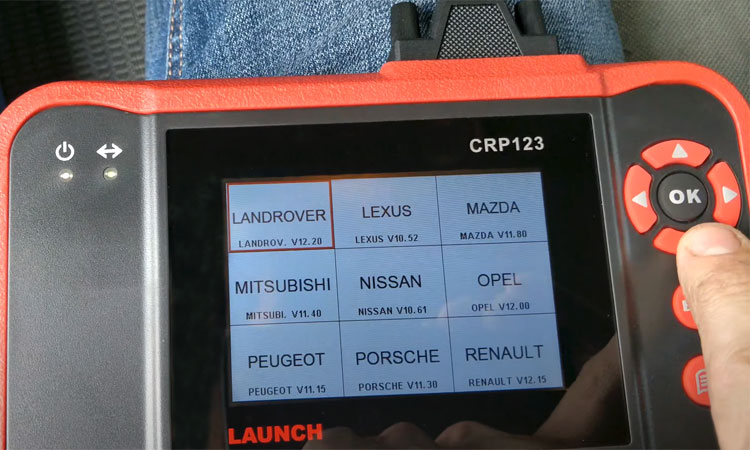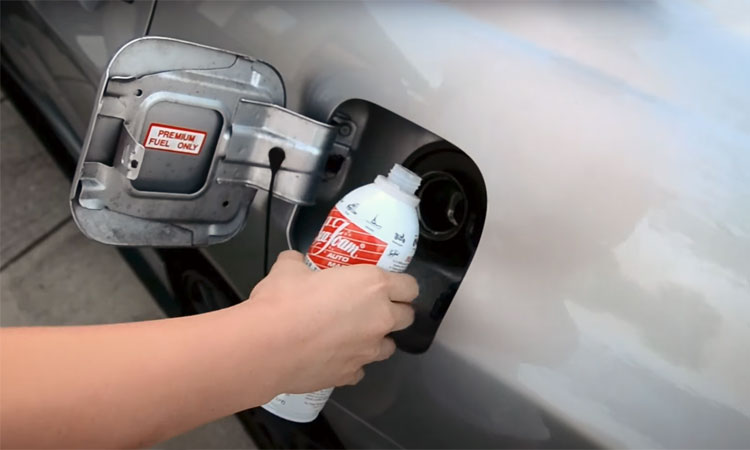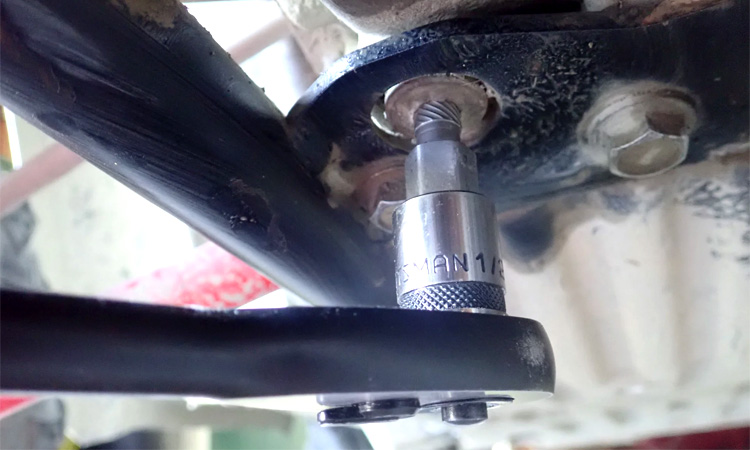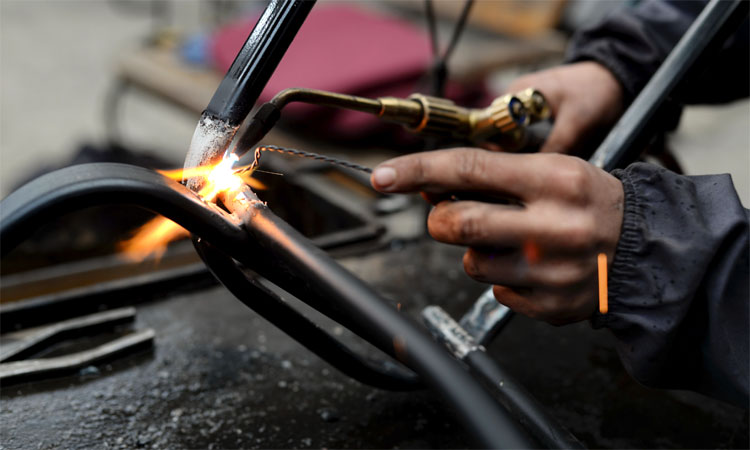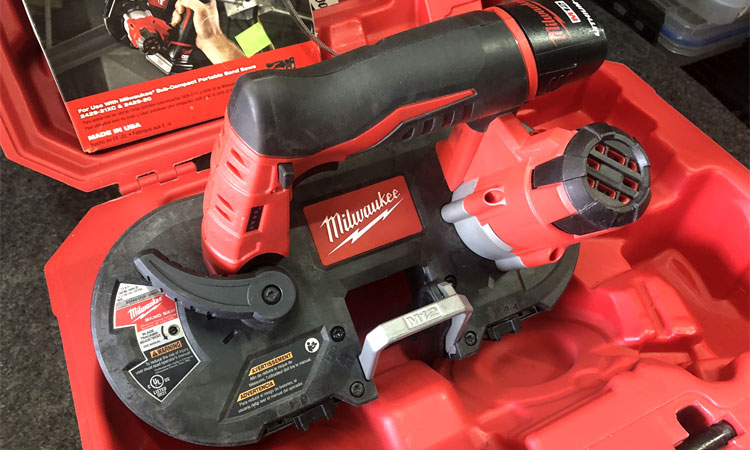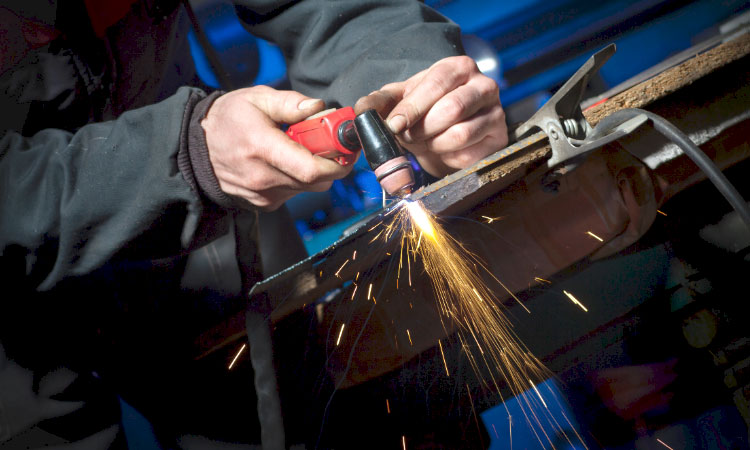7 Best Pressure Washers for Home Use (Concrete, Decks, Siding, Cars)
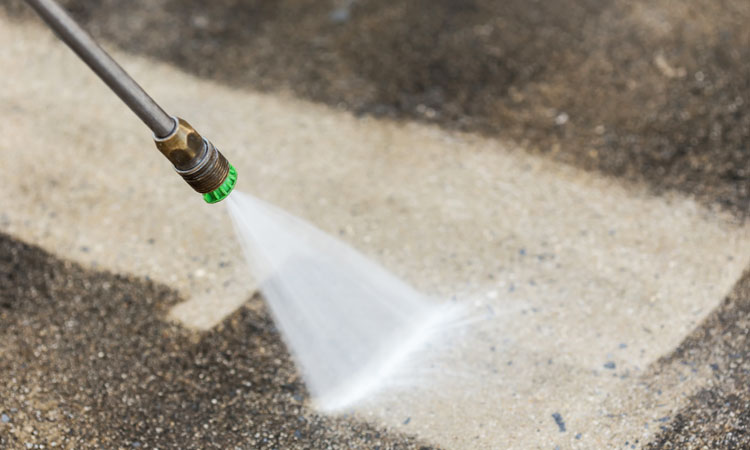
Getting the best pressure washer for the money means doing a bit of comparison shopping. If you’re a little older or have physical limitations, an electric pressure washer is much lighter and easier to use.
On the other hand, gasoline engines are safer, have more pressure, and only tie you to a water source instead of both water and power.
Always be sure to follow the directions carefully, including using hoses that are capable of delivering enough water pressure, because the performance of your pressure washer is dependent on meeting the design specifications.
Even the top rated pressure washers have limitations, but these models offer the best options you will find for your money. For more commercial applications, hot water pressure washers are also available but they are in a completely different price range.
Note: We highly recommend gas pressure washers powered by a Honda engine for their outstanding reliability and being easy-to-start. Fortunately, our top 3 picks meet this important criteria.
Our 7 Favorites
| Product | Type | PSI | GPM | Cleaning Units | Hose | |
|---|---|---|---|---|---|---|
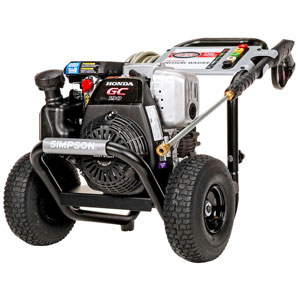 | Simpson MegaShot MSH3125 | Gas | 3,200 | 2.5 | 8,000 | 25' |
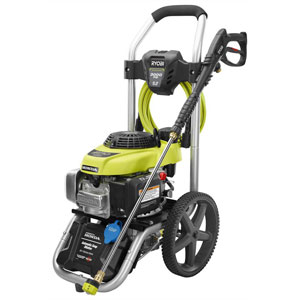 | Ryobi RY803001 | Gas | 3,000 | 2.3 | 6,900 | 35' |
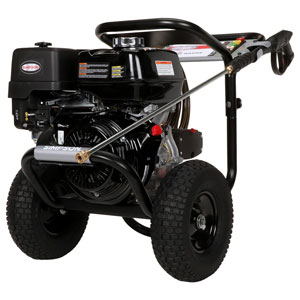 | Simpson PowerShot PS4240 | Gas | 4,200 | 4.0 | 16,800 | 50' |
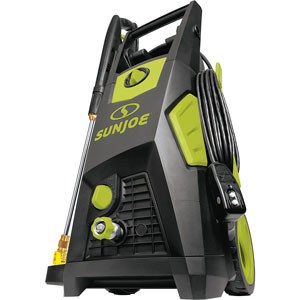 | Sun Joe SPX3500 | Electric | 2,300 | 1.5 | 3,450 | 20' |
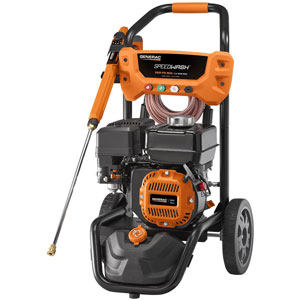 | Generac 6882 | Gas | 2,900 | 2.4 | 6,960 | 25' |
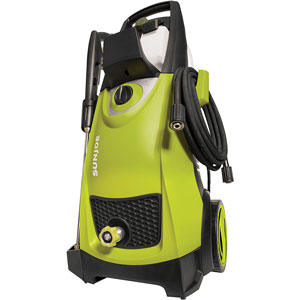 | Sun Joe SPX3000 | Electric | 2,030 | 1.8 | 3,654 | 20' |
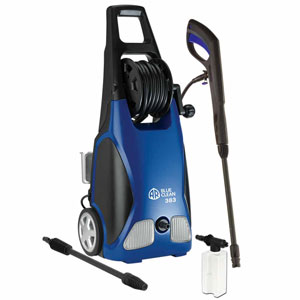 | AR Annovi Reverberi AR383 | Electric | 1,900 | 1.5 | 2,850 | 20' |
Pressure Washer Reviews
#1 – Simpson MegaShot MSH3125-S
 Equipped with an easy-to-start Honda GC190 OHC engine and a maintenance-free OEM Technologies axial cam pump, the Simpson MSH3125 is currently the best pressure washer for the money.
Equipped with an easy-to-start Honda GC190 OHC engine and a maintenance-free OEM Technologies axial cam pump, the Simpson MSH3125 is currently the best pressure washer for the money.
Providing 3,200 PSI of water pressure and moving 2.5 gallons per minute, it’s the perfect pressure washer for residential use and the variety of tasks it can handle. There’s a night and day difference 3,000+ vs 2,000 PSI pressure washer so with this model, you’re not limited as to what you can do.
Five quick-connect nozzle tips (0°, 15°, 25°, 40°, and soap) connect to the 16″ steel wand (34″ from grip to nozzle tip) and abrasion-resistant, 25-foot long, 1/4-inch thick MorFlex high pressure hose.
Its welded steel frame and 10-inch premium pneumatic tires combine sturdy construction with a small enough size and weight to be carried by a single person. We prefer the large rubber tires over the plastic wheels that are standard on many other models since moving the washer is easier and quieter.
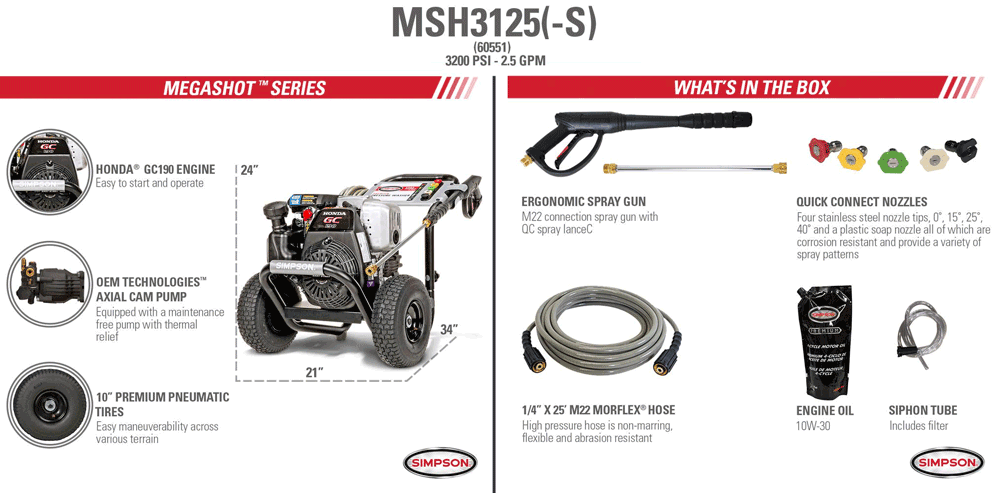
This pressure washer’s not only easy to start and use (thanks to the excellent Honda GC190 OHC engine), it’s also easy to assemble. Users report the Simpson gives excellent results, and the washer’s easy to transport.
An Axial water pump is typical for residential pressure washers. While it’s essentially maintenance-free, it isn’t as efficient as an AAA Triplex pump found in commercial pressure washers (see the Simpson PowerShot below). But for typical uses where you use your pressure washer once or twice a month, an Axial pump is perfectly fine.
Used with the 15″ Simpson surface cleaner, you’ll make quick work of cleaning your driveway, sidewalk, garage floor, patio, and deck. It’s a perfect match. For taller individuals or harder to reach locations, a longer 31″ spray lance is a good, inexpensive upgrade.
While the Simpson MegaShot arguably has the best combination of performance, price, and reliability, this gas pressure washer is going to be a bit heavier than a typical electric model.
A small number of owners have reported minor damage from shipping, including a bent frame or broken wand. Be sure to inspect it when delivered to make sure it’s intact.
>> Check price at Amazon.com <<
>> Check price at HomeDepot.com <<
#2 – Ryobi RY803001
 Capable of 3,000 PSI and 2.3 gallons per minute, the RY803001 is a great choice for almost any project and is a very popular gas pressure washer for home owners.
Capable of 3,000 PSI and 2.3 gallons per minute, the RY803001 is a great choice for almost any project and is a very popular gas pressure washer for home owners.
Like the Simpson, it has a dependable Honda engine, but this time the slightly smaller Honda GCV160. The engine and tank are housed in a sturdy, compact frame supported by 12-inch flat-free wheels for easy transport.
Rounding out the package is a 5-in-1 quick change nozzle to cover any task and a 3-year limited warranty. This type of nozzle is nice time saver if you’re cleaning different types of materials (ie: concrete vs siding vs glass).
An onboard detergent tank eliminates the need to carry a separate tank and is connected to a 35-foot non-marring hose (we wish the Simpson had the extra 10 feet of hose).
Like the Simpson MSH3125-S, it uses an Axial water pump which is typical for this price range. Because this Ryobi is such a popular model, replacing the pump if it were to fail in the future is not too expensive.
Tip: Once done pressure washing your driveway or garage floor, follow it up with a good concrete sealer to make future cleaning much easier.
Compared to other models, especially in its price range, the RY803001 is lightweight, easy to use, and surprisingly quiet. However, there are a number of customers who have reported issues with customer service if a part breaks. These reports also suggest quality control may not be as good for this brand as it is for Simpson.
>> Check price at HomeDepot.com <<
#3 – Simpson PowerShot PS4240
 When you want a real workhorse with sheer power, it’s hard to beat the PS4240. This heavy duty washer’s capable of 4,000 PSI and an impressive 4 gallons per minute. It’s one of the best commercial pressure washer’s around and a good option of homeowners with a lot of areas to clean.
When you want a real workhorse with sheer power, it’s hard to beat the PS4240. This heavy duty washer’s capable of 4,000 PSI and an impressive 4 gallons per minute. It’s one of the best commercial pressure washer’s around and a good option of homeowners with a lot of areas to clean.
The bulletproof and easy to start Honda GX390 engine is paired with a maintenance free Comet AAA Triplex pump with PowerBoost technology for excellent efficiency and superior reliability to other pumps. The pump simply runs cooler and quieter and will do so for long stretches of time.
The 3/8-inch thick, steel-braided, 50-foot long hose includes quick connect fittings, polyurethane outer jacket, and is both kink and abrasion resistant. Everything’s held securely in a welded steel frame and supported by large 13 inch pneumatic tires.
Last but not least, the nozzle has five quick connect tips for added versatility: 0°, 15°, 25°, 40°, and soap.
The majority of consumer feedback regarding the Simpson PowerShot may be summed up in one word: super. It has super power, is super quiet, super easy to assemble and run, and all for a super price.
That’s not to say it’s perfect, however, and a few customers have been known to receive refurbished units that are prone to breakage. Be sure to check for signs of prior usage upon arrival.
This heavy duty pressure washer may be a bit overkill for most homeowners, but for commercial applications (including running a pressure washing business) or those with large properties, it’s hard to find a better pressure washer for the money than the Simpson PowerShot PS4240.
>> Check price at Amazon.com <<
>> Check price at HomeDepot.com <<
#4 – Sun Joe SPX3500
 Not everyone needs the power of a gas pressure washer or has time to setup, refuel, and maintain it. Arguably the best electric pressure washer out there, the Sun Joe SPX3500 features a 13-amp brushless induction motor capable of producing up to 2300 PSI and moving 1.48 gallons per minute.
Not everyone needs the power of a gas pressure washer or has time to setup, refuel, and maintain it. Arguably the best electric pressure washer out there, the Sun Joe SPX3500 features a 13-amp brushless induction motor capable of producing up to 2300 PSI and moving 1.48 gallons per minute.
A Total Stop System shuts the pump off when the trigger isn’t engaged, while the detergent dial allows you to control how much detergent gets mixed in from the 40.6 ounce onboard tank.
Whether cleaning dirt and grime off your patio or using with a good foam cannon to easily wash your car, the SPX3500 gets the job done. While it may not have the shear power of gas powered models, nothing beats the quick setup and ease of use of a good Sun Joe electric pressure washer.
The 34-inch spray wand with 5 Quick-Connect nozzles (0°, 15°, 25°, 40°, and soap) pair up with a 20-foot high pressure hose and 35-foot extension cord to give maximum dirt-fighting range.
This is an excellent pressure washer, but it’s important to follow instructions carefully to ensure full pressure and optimum functionality. Failure to do each step has been known to trip breakers or damage the equipment. When used properly, it’s a powerful, efficient dirt killer.
>> Check price at Amazon.com <<
>> Check price at HomeDepot.com <<
#5 – Generac SpeedWash 6882
 Generac has long been known for their portable generators and now are becoming a big neighbor in the world of pressure washers. For use around your house or small shop, this is one of the better power washers on the market.
Generac has long been known for their portable generators and now are becoming a big neighbor in the world of pressure washers. For use around your house or small shop, this is one of the better power washers on the market.
It uses one of the smaller engines (196cc) found on the company’s pressure washers, a big plus if you have to move the unit around frequently, or do not have a lot of strength or stamina.
With a strong 2,900 PSI and a 2.4 gallons per minute flow rate, it has an impressive 6,960 cleaning power score (PSI x GPM). It works great on mold, mildew, and things like cleaning wood or concrete, and has 4 different attachments to fit most of your pressure washing needs.
There’s also an on-board 1/2 gallon detergent tank for concrete cleaner for those stubborn stains as well as a decent quality 25-ft hose. The Turbo nozzle is said to remove dirt and grime 30% faster than a standard nozzle tip.
There is a small design flaw worth mentioning. Because the muffler is on the same side as those hose connection, you do need to be careful when connecting/disconnecting. For some easy insurance, a quick fix is to zip tie the hose to the bottom rail that runs under the exhaust.
Other complaints with the Generac pressure washer are related to customer service, not the machines themselves. If you ever have a reason to call for assistance, don’t be surprised if you get some incompetence and indifference. Things have improved over time but don’t expect award-winning customer service.
>> Check current price <<
#6 – Sun Joe SPX3000
 Sometimes you want a pressure washer that isn’t the most powerful but instead is the best all-around. The SPX300 is smaller than the SPX3500, but provides some of the best performance for its class. It’s what makes it one of the best selling pressure washers of all time.
Sometimes you want a pressure washer that isn’t the most powerful but instead is the best all-around. The SPX300 is smaller than the SPX3500, but provides some of the best performance for its class. It’s what makes it one of the best selling pressure washers of all time.
The 14.5-amp electric motor can produce up to 2030 max PSI (most jobs will run at 1450 PSI) at 1.76 gallons per minute. Two onboard 0.9 liter onboard detergent tanks allow for more versatility without needing to swap out detergents.
As with the SPX3500, this model includes a 34-inch extension wand, 20-foot high pressure hose, 35-foot power cord, TSS protection, and five easily swappable nozzles.
There’s a lot to love here, both with the company and the product. It’s small, light, powerful, effective, and easy to use. It’s worth noting that Sun Joe created a replacement connector for the water hose due to a previous defect. You will need to contact them for the part and they’ll send it free of charge.
Register the washer upon arrival, and you’ll enjoy a 2-year no questions asked warranty, making this one of the most reliable electric pressure washers on the market.
>> Check price at Amazon.com <<
>> Check price at HomeDepot.com <<
#7 – AR Annovi Reverberi AR383
 Sometimes, simple is best and not everyone has the need (or budget) for a large, powerful power washer. With 1,900 PSI and a 1.5 GPM rating, it’s on the higher end for electric models but can’t compete with the water pressure from gas models.
Sometimes, simple is best and not everyone has the need (or budget) for a large, powerful power washer. With 1,900 PSI and a 1.5 GPM rating, it’s on the higher end for electric models but can’t compete with the water pressure from gas models.
Intended for light duty applications, it will do a good job of washing your car or cleaning moss off of concrete, but may not have the output to remove heavy oil stains or mildew. It includes a 1/4-inch 20 foot hose, 2 spray wand with different nozzles, and a 14 ounce detergent bottle (which is nice feature to have).
The construction quality leaves a bit to be desired, and the most frequent complaint with the AR383 is that it can develop minor leaks. This unit is intended for residential usage, and works great if you do not have the strength to wrestle with heavier gasoline powered units.
Because it has a high amperage rating, you will need to plug it directly into an outlet, or use it with heavy-duty extension cord if the 35-foot power cord isn’t long enough. While it’s not as loud as a gas unit, you may actually find the noise to be more annoying than anything.
While you can do better as far as pressure washers go, the AR383 is overall a good little cheap pressure washer if you have a small property
>> Check current price <<
Pressure Washer Buying Guide

There’s a lot to absorb when buying a pressure washer. Different wheels, pressures, pumps, and power sources can all get confusing very fast. Here’s a brief explanation of each major aspect to help you pick the model that best suits your needs.
Gas vs Electric
Don’t sell yourself short by automatically thinking that bigger is better. Gas powered pressure washers put out more power, have higher quality parts in general, and tend to be bigger. That’s because they’re designed for tasks which require more pressure and are built to be used more often and last longer.
Electric pressure washers are made of lightweight materials. They’re smaller, more mobile, and easier to maintain. For the average homeowner who may not use their power washer very often, a small electric unit may make more sense.
Pure and simple, gas is better for larger, frequent, or difficult tasks while electric is better for smaller, simpler tasks. Buy the type that matches the intensity of work you’ll need it for most but also think about what you may use it for in the future.
There are a lot more users that will say “I wish I got a more powerful washer” vs “this washer is too much for what I need”.
PSI (Pounds Per Square Inch)
Water pressure is an important factor in determining what pressure washer is best for your needs. Too much pressure can damage surfaces, while too little won’t get the job done. There are four general categories of pressure washers.
- Light Duty (1,000 to 1,900 PSI) – This is the most basic pressure range for small, electric units. This range is adequate for most home cleaning jobs, including washing the car.
- Medium Duty (2,000 to 2,900 PSI) – Available in gas and a handful of electric models, this pressure range can handle almost any residential job you throw at it.
- Heavy Duty (3,000 to 3,900 PSI) – This is the sweet spot for durable residential gas pressure washers that will handle any task you throw at it. While you can usually get a large surface cleaned with a medium duty model, a heavy duty washer will get it done quicker and easier.
- Commercial (4,000+ PSI) – Generally, these types of power washers are far more powerful than the average homeowner will ever need but they are perfect for pressure washing businesses, contractors, or in industrial settings.
GPM (Gallons Per Minute)
This is the amount of water put out per minute. It doesn’t have a huge effect on haw much grime you can remove, but it will affect how fast it comes off. A higher GPM generally saves both time and money.
For instance, you’ll be able to clean a driveway much quicker with a 2.5 GPM washer versus a 1.5 GPM model since you can move a higher amount of dirty water away from the surface.
CU (Cleaning Units)
This measurement, known as Cleaning Units, can be tricky for first-time buyers. The rating is based on the machine’s PSI multiplied by its GPM. CUs tend to represent the amount of time it takes to perform a task, so a machine with lower PSI and higher GPM might have the same CU as a model with high PSI and low GPM.
When purchasing a model which gives a CU rating, be sure to look at the individual PSI and GPM stats so you can get the best possible combination for your needs.
Wheels and Tires
It goes without saying that a portable pressure washer isn’t very portable if it has poor wheels. When buying a pressure washer, look for one with larger wheels and if possible, pneumatic tires.
You’ll want wheels that can maneuver over small holes without getting stuck and ideally, pneumatic tires which offer both shock absorption to traverse bumpy ground and a wider tread for less sinking on soft ground.
Water Pump
This is where things can get really confusing. A pump is the heart of your pressure washer, and there are quite a few different types out there. Here’s a quick summary of the three most common types you’ll run into and where they work best.
- Axial Cam Pump – These mid-range pumps have an expected lifespan of 500 to 800 hours and are well-suited for washers running 3,500 PSI or under. However, they heat quickly, cool slowly, and may cause vibrations if not properly aligned.
- Triplex Plunger Pump – While not a cheap initial investment, with proper care these pumps can last up to 8,000 hours and replacement parts are fairly cheap. They have as much as 90 percent efficiency, cool relatively quick, and are found on pressure washers that provide 3,000 PSI or higher. They’re often labeled as an AAA Triplex Pump. By far the best pump type but you’ll pay a premium.
- Wobble Plate Pump – You’ll commonly find these pumps on pressure washers that provide less than 2,000 PSI and 2.0 GPM. They’re inexpensive, self-priming, and have a lifespan of 200 to 400 hours. Unfortunately, they cannot be repaired or replaced due to their complexity.
Nozzle Tips
It’s important to have the properly sized tips for your pressure washer hose. A tip that’s too small will clog, while one that’s too large will decrease pressure. You should also always check the nozzle’s “fan” (i.e. spray angle). Too narrow a spray will damage surfaces, while too wide a spread will make it harder to get trouble spots.
Finding the best tip for the job can take a little practice, but it’s easier when you use a nozzle size chart. Just be warned, sometimes the tips that come with your new pressure washer are stock tips and not necessarily sized appropriately for your washer.
What to do When Your Pressure Washer Stops Working
There are several reasons a pressure washer can stop working, usually due to a minor oversight in storage or prep. The good news is, these issues can often be fixed without having to replace the washer or take it to a shop.
In some cases, parts will have become damaged in storage and need replaced. Try these fixes before discarding a possibly serviceable unit.
Lubricate the Unit
You should be using a pump protector lubricant such as Pump Saver or Sta-Bil at the end of each season to keep the internal gaskets from seizing up during storage. The good news is, you can still use the lubricant on a seemingly dead unit.
Simply pick up a bottle of power washer pump protector lubricant, screw the bottle directly into the garden hose connection point on the washer, and give the bottle a squeeze or two. Let it sit for 10 or so minutes to soak in, and the unit should start up like new.
Check the GFCI Plug
Sometimes the problem is electrical in the case of electric pressure washers. With the unit unplugged, use a screwdriver to remove the GFCI’s cover. Check the inside for any signs of water damage.
In the event the plug has been damaged by water or other issues, you can simply buy a replacement GFCI plug at any hardware store. When connecting, be sure to match the black wire to the gold connector and the white to the silver. It’s a quick, easy fix that will only cost a few dollars for the part.
Check the Hose Pressure and Water Intake
These two seemingly minor issues can cause a lot of trouble. When there’s not enough water getting into the unit, the motor will continuously run with no effect. Likewise, make sure the spraying hose hasn’t become pressurized.
Failsafes in the motor will cause it to shut off and remain off until the hose has been depressurized. Pressure is often the result of a nozzle issue.
A pressurized hose is usually the reason why starting a gas pressure washer may seem impossible to start. Press the trigger on the wand until water is only slowly streaming out and then pull the starting cord on the engine to fire it up.
Check the Nozzles
There are two major nozzle problems that can result in hose pressure. The first is improper sizing. A nozzle that’s too small will clog or cause a pressure buildup. This must be remedied by consulting a size chart and getting the proper nozzle for your unit’s PSI and GPM.
Another common issue is failing to maintain the nozzles. After use, they should be removed, dried with a paper towel and stored in the designated spot on the unit. Leaving the nozzle on or failing to dry it out can cause it to rust shut.
You can sometimes temporarily fix this by using a #00 precision flat head screwdriver to push through the blockage, from the outside, but rusted nozzles should be replaced to prevent the risk of further damage to the unit or pressure issues.
Soaking a nozzle for 1 hour in vinegar can often unclog it as well.

